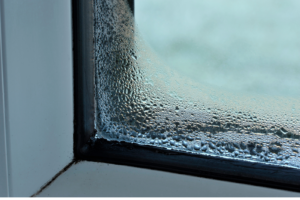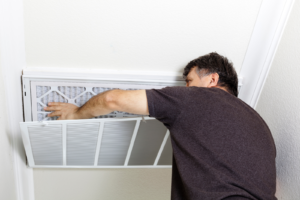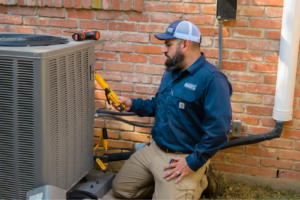HVAC Units in Texas: Warning Signs and Solutions for a Cool Home
In the scorching heat of Texas, HVAC units are not a luxury; they are an absolute necessity. When your HVAC system starts showing signs of trouble, it’s essential to pay attention and address issues promptly to prevent a complete breakdown.
As service providers for San Antonio through Kyle, Shafer Services Plus will explore the warning signs that indicate potential HVAC problems, providing you with valuable insights to catch these issues before they escalate. By being vigilant and proactive, you can ensure a comfortable and cool home environment throughout the year.
What Warning Signs Are There That My Air Conditioning Is Not Working?
1. Hot or Cold Spots: Uneven Temperatures
If you notice significant temperature differences in different areas of your home, such as certain rooms being excessively hot or cold compared to others, it may be a sign of HVAC trouble, which could lead to an increase in cooling service costs in the future if not addressed as soon as possible. Uneven cooling or heating can indicate issues with your system’s airflow, ductwork, or even thermostat calibration.
Hot or cold spots in your home can create discomfort and hinder your HVAC system’s ability to maintain a consistent and comfortable indoor temperature. To diagnose and resolve this problem, it’s best to consult an air conditioning professional. They can assess your system, identify the underlying cause of the temperature imbalances, and recommend appropriate solutions to restore balanced comfort throughout your home.
2. Increased Indoor Humidity: Dampness and Discomfort
Excessive indoor humidity can make your home feel sticky and uncomfortable, and promote the growth of mold and mildew. If you notice a rise in humidity levels or experience condensation on windows and walls, your HVAC system may not be effectively removing moisture from the air. Addressing this issue is crucial for maintaining a healthy and pleasant indoor environment.

Humidity control is an important function of your HVAC system, particularly in regions with high humidity levels like Texas. An A/C professional can assess your system’s performance, identify any underlying causes such as clogged drains, malfunctioning condensate pumps, or inadequate ventilation, and recommend appropriate solutions. By restoring optimal humidity levels, you can enhance your comfort and maintain a healthier indoor environment.
3. Blowing Warm Air: Cooling Failure
One of the most obvious signs of HVAC trouble is when your unit starts blowing warm air instead of cool air. The problem could be related to refrigerant levels, as low refrigerant can impede the cooling process. Other possible causes include compressor failure or issues with the condenser coils. Prompt attention is necessary to avoid prolonged discomfort during hot Texas summers. Contacting an air conditioning company is recommended. They can diagnose the issue, identify the root cause, and propose suitable solutions to restore cool air circulation throughout your home.
4. Low Airflow: Restricted Comfort
If you notice weak or reduced airflow from your vents, it can indicate obstructions, clogged filters, blocked vents, issues with the blower motor, or blockages within your HVAC system. Restricted airflow not only compromises your comfort but also makes it difficult for your HVAC system to effectively cool or heat your home, which puts additional strain on the system, potentially leading to more significant issues.

Regularly checking and replacing air filters is a simple maintenance task that can help prevent airflow problems. However, if the issue persists, it’s advisable to consult an A/C service company. They can conduct a thorough inspection, identify the cause of reduced airflow, and recommend appropriate measures to restore optimal performance.
5. Unusual Odors: Foul Smells
Foul or unpleasant odors emanating from your HVAC system can indicate underlying issues that require attention and should not be ignored. Musty smells may suggest mold or mildew growth, while burning odors can indicate electrical problems or overheating components. Ignoring these odors can lead to further damage, health hazards, and poor indoor air quality.
It’s crucial to have an HVAC professional from an A/C maintenance company assess the situation to determine the source of the odor and take appropriate actions to rectify it. By addressing the issue promptly, you can ensure a fresh and clean indoor environment while preventing further damage to your HVAC system.
6. Strange Sounds: Clues in the Noise
Unusual sounds coming from your HVAC system can be an alarming sign of a problem. Rattling, grinding, hissing, or banging noises can indicate issues with the fan motor, compressor, or other internal components. Identifying and resolving these sounds promptly can prevent costly repairs or system breakdowns.
Each sound can be an indicator of a specific issue within the system. Rattling noises may suggest loose or broken components while grinding sounds could indicate problems with the motor or bearings. Hissing sounds might signify refrigerant leaks, and banging noises could be a sign of a faulty compressor. These sounds should not be ignored, as they can worsen over time and lead to more significant damage. Contacting an air conditioner tune-up company for a thorough inspection is the best course of action. They can identify the source of the sounds and recommend appropriate repairs or replacements to restore your system’s proper functioning.
7. Decreased Indoor Air Quality: Breathing Easier
Your HVAC system plays a crucial role in maintaining indoor air quality by filtering out contaminants, allergens, and pollutants. However, if you observe a decline in indoor air quality, it could indicate that your system’s filtration and purification mechanisms are compromised. Dirty air filters, clogged ductwork, or malfunctioning air purifiers can contribute to poor indoor air quality. Regularly replacing air filters and scheduling professional maintenance can help prevent such issues. If you’re experiencing persistent air quality problems, consult a cooling professional who can assess your system, identify potential causes, and recommend appropriate solutions to enhance your indoor air quality.
8. Higher Energy Bills: Unexpected Spikes
If you notice a sudden increase in your energy bills without any apparent explanation, it could be a result of an inefficient or malfunctioning HVAC system. Inefficient performance can lead to excessive energy consumption and unnecessarily high utility costs.
Your HVAC system’s efficiency directly impacts your energy consumption and utility bills. Factors such as aging equipment, improper maintenance, or underlying issues can contribute to reduced efficiency. Seeking professional assistance can help identify areas for improvement and optimize your system’s performance, ultimately reducing your energy bills and saving you money in the long run.
Shafer Services: Your Trusted HVAC Solution Provider
When you encounter any of the warning signs mentioned above, it’s crucial to seek professional help to diagnose and address the issues promptly. At Shafer, our trusted HVAC professionals are here to assist you. We have the expertise to identify problems, provide multiple solutions tailored to your needs and budget, and guide you through the decision-making process.

Additionally, we offer San Antonio through Kyle’s most comprehensive and affordable preventative maintenance plan to prevent HVAC issues, extend the lifespan of your unit, and save on energy costs. Our plan serves as protection for your home, providing you with peace of mind, saving you time, and reducing the likelihood of unexpected breakdowns or costly repairs.
By staying vigilant and paying attention to the warning signs discussed above, you can catch HVAC problems before they escalate into major issues. Remember, a well-maintained and properly functioning HVAC system is essential for a cool and comfortable home in Texas. Trust the professionals at Shafer Services to provide you with the expert solutions and preventative maintenance you need to keep your HVAC system running smoothly and efficiently all year round.

